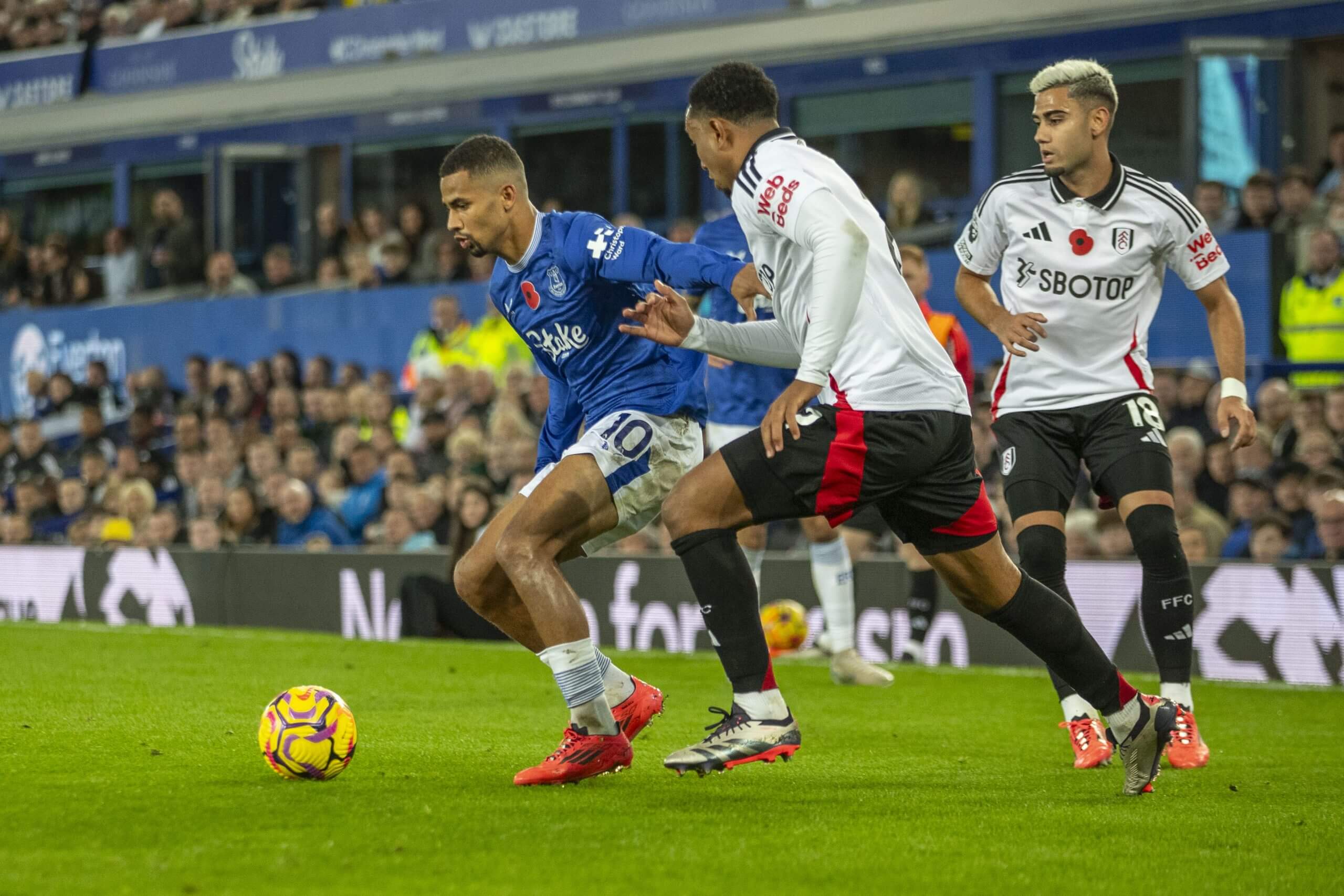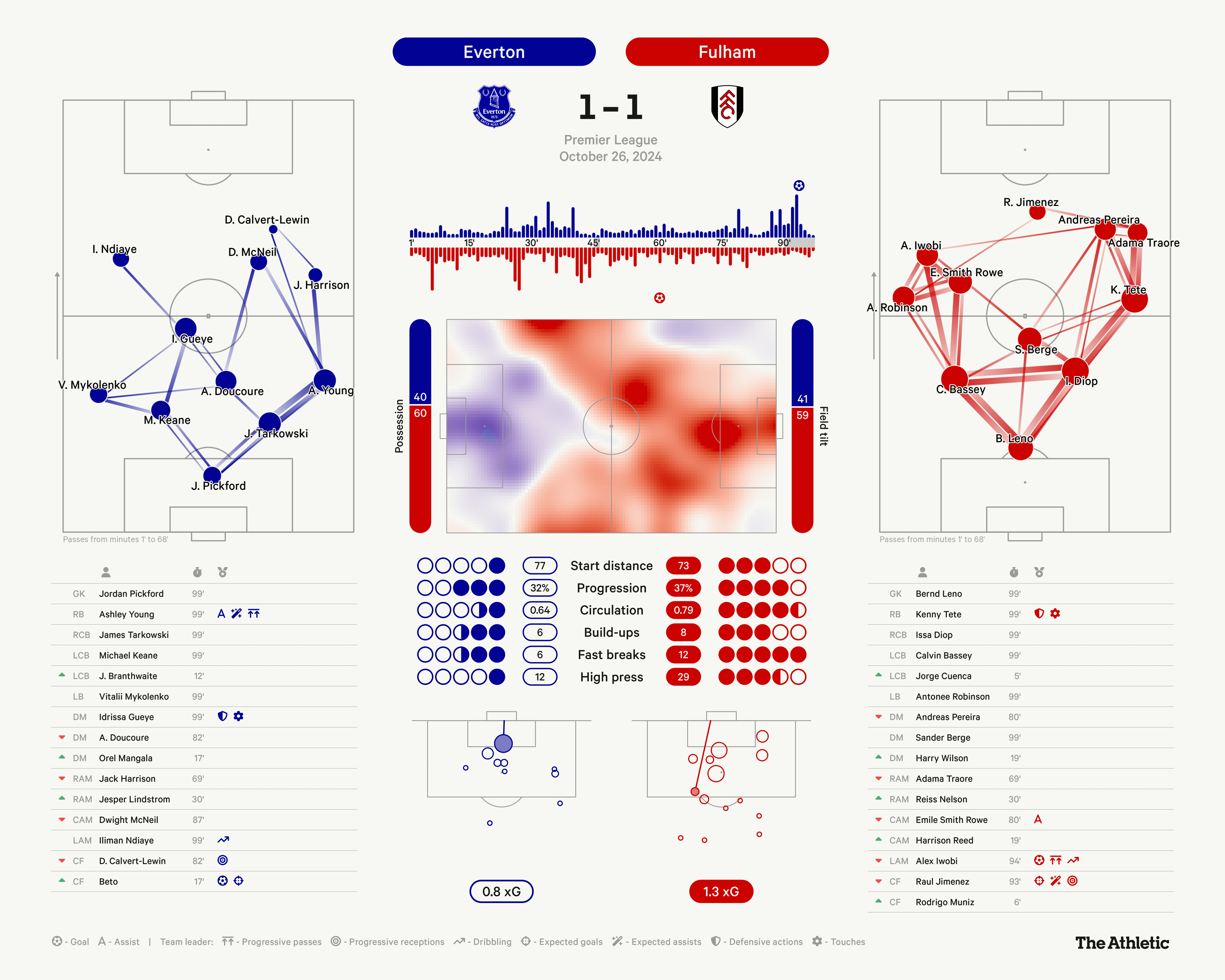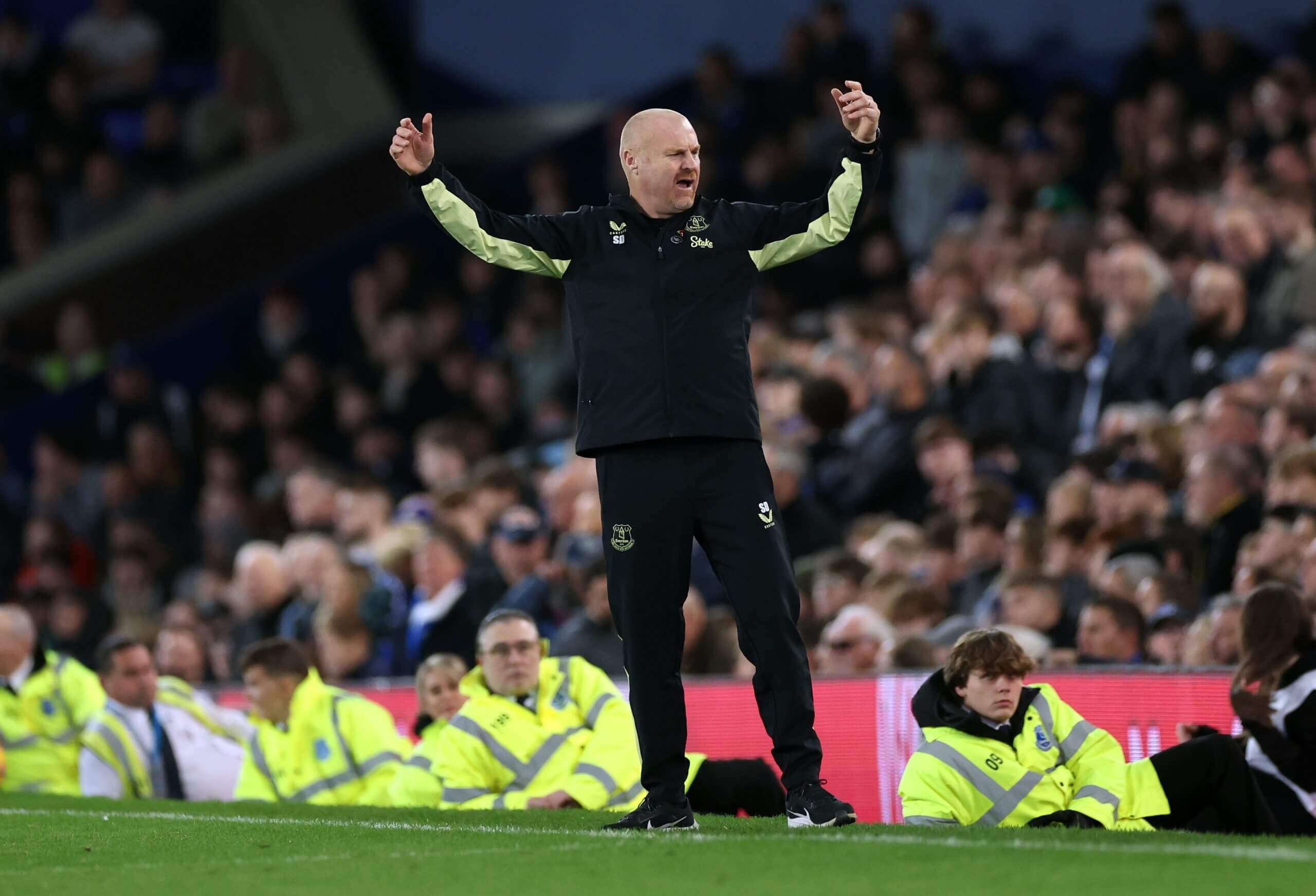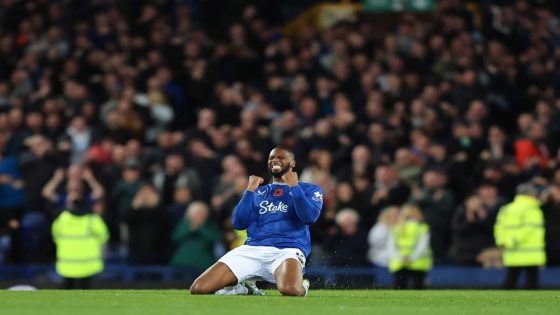This time, the Hail Mary paid off.
In Saturday’s dying stages, Everton manager Sean Dyche threw the twin peaks of Beto and Michael Keane — the latter a makeshift striking option — up top as he sought to rescue a point from a game in which his side had comfortably been second best.
It looked like being the final desperate and forlorn effort to preserve their unbeaten run; an even more rudimentary version of what had come before. But then came the stoppage-time twist.
Beto equalised in the fourth of six additional minutes, letting out a roar of emotion in front of Goodison’s Gwladys Street End and Everton, somehow, had burgled a point.
At full time, the substitute striker held his shirt over his face, seemingly failing to stem the flow of tears while everyone else tried to work out what the hell had actually happened.
Fulham, slicker throughout, had left the door open just enough for the Portuguese to crash his way through. Note particular emphasis on the word crash.
For aside from the occasional elegant swish of Dwight McNeil’s left boot and Iliman Ndiaye’s trickery, there is rarely much subtlety about Everton under Dyche.
They are what they are, warts and all, and there are indeed times when it does not look like being enough. Even the response to games ebbing away from them is to go deeper into themselves; to become even more basic and direct. Withstand the barrage and you often withstand Everton.

Beto’s late equaliser may have meant that most match reports had to be hastily re-written and Everton made it five unbeaten, but the main takeaway from Saturday’s 1-1 draw against Fulham should be how fragile it all remains.
Everton are still, to quote their manager, so “obviously a work in progress”, still flawed in a number of key ways as a team, a group of individuals and sometimes as a coaching staff.
For over 90 minutes of Saturday’s game, the display against Fulham offered a stark reminder of that. Of how one-dimensional they can be in possession, banging the ball long religiously to a target man, with Dominic Calvert-Lewin left increasingly isolated. Of how much they rely on Ndiaye to produce moments of magic. Of some of McNeil’s teething problems in his new No 10 role. Of the lack of athleticism, pace and control and quality on the ball. Of the lack of a Plan B.
This game was largely played on Fulham’s terms. Everton surrendered the initiative early on, arguably paying their visitors too much respect — a home win would have seen the two teams level on points — and never really clawed it back. It should have been a clash between relative equals, but it rarely was.
The main problem with such a passive approach at Goodison is that it fails to harness one of Everton’s main home advantages: the crowd. Goodison was neutered and usually ended up being at its most vocal when voicing its discontent at timid play or decisions made by the bench.
Everton persevered with the long ball into Calvert-Lewin despite its limited success. It felt like a waste to see someone of Ndiaye’s ability on the periphery as the ball sailed over his head. As tired legs set in, Fulham’s superior quality and athleticism started to tell. Alex Iwobi, the former Everton player who scored the opener, and Emile Smith Rowe burst through midfield at will.
At times, it felt like the Everton dam would collapse, but they just about clung on.

Dyche struggled to pinpoint afterwards why it had all felt so flat despite their recent resurgence.
“It has been a really positive training week after a very controlled performance away (at Ipswich),” he said. “Everyone was ready and yet we never really got to grips with the game.
“We weren’t at it. We never really committed to either way of playing. If we were playing long, we never really got after it and forced the game. If we were playing short, we never really played with purpose.
“We were short of where we have been. On the other hand, the balance of football is it lasts for 90-plus minutes. I have asked the players for relentlessness and I thought that was on show.”

After eight points from their previous four games, the other lesson from Saturday is that this season will remain something of a slog for Everton. There will be bumps along the way.
They should have enough quality and resilience to meet bottom lines, but there is a cap on their ambition playing this way, particularly while they wait for the Friedkin Group’s takeover to go through and fresh investment to come in.
“There are teams in this division — Arsenal, Manchester City — who can stick to what they do and can find goals and be relentless in a different way,” Dyche said. “We’ve got to operate in different ways. That’s the squad we’ve got and the task in front of us, to make sure we’re secure in the Premier League season after season.
“It (the survival aim) was outlined to me when I got the job. It (the remit) changed radically and was a lot worse than I was told when I took the job. If you look since then, we’ve brought money in, spent less and we’ve reduced wages significantly.
“That’s not a problem to me, it’s just the challenge. I’ve never lost sight that we’ve got to win games. No one cares about the rest of it, but I have to because it’s my job. We’re just beginning to show signs we can win games and if we can’t win, we don’t get beat.
“That’s just beginning to grow again, but we’re always a work in progress — that’s quite obvious.”
There will be better days ahead for Everton this season than this, but there will likely be worse ones, too.
(Top photo: Matt McNulty/Getty Images)





